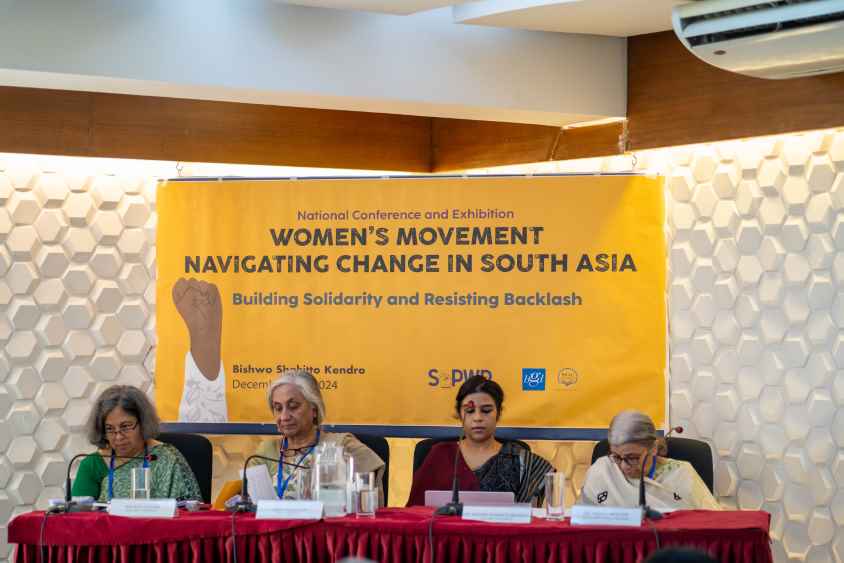
Speakers at the National Conference on Women’s Movement Navigating Change in South Asia: Building Solidarity and Resisting Backlash, organised by the BRAC Institute of Governance and Development (BIGD), Brac University, and the Sustaining Power: Women’s Struggles against Contemporary Backlash in South Asia (SuPWR) project, examined how economic shocks and rise in populist agendas have affected space for advocating women’s rights and gender equality agendas across South Asia.
Bangladesh, India, Nepal, and Pakistan have all experienced economic and/or political shifts that have polarised public discourse on gender equality, co-opted women’s empowerment for exploitative agendas, permitted threats to and vilification of women’s rights, and instigated gender-based violence, said participants at the conference held on 8 December 2024 at the Bishwo Shahitto Kendro in Dhaka.
It is important to understand the contentions underlying the backlash against women’s rights movements, said Shireen Pervin Huq, Chair of Bangladesh Women’s Affairs Reform Commission and founder of Naripokkho, a women’s rights organisation. In her remarks as a chief guest, she also lauded the contribution of girls and women in the anti-discrimination movement that led to the July uprising. “It was inspiring for my generation of women to see hundreds of thousands of girls and women take to the streets [during the July uprising], not fearing pushback or repercussions. Back in our time, when female activists tried to be assertive, they were often met with backlash. They had to either back down or face consequences,” she added.
In his opening remarks, Dr. Imran Matin, Executive Director, BIGD, questioned the extent to which progressivity has been inclusive. “It is important that we question progressivity and critically examine backlash to chart a way forward in advocating [for women’s rights],” he said.
Speakers also emphasized the importance of participating in social movements to affect change. “We don’t just want to contribute to the literature surrounding social movements but be active agents of social change,” said Maheen Sultan, Senior Fellow of Practice and Head of the Gender and Social Movements Cluster at BIGD.
The day-long conference brought together researchers, gender justice struggles in Bangladesh that have been researched, and academics and practitioners to share insights and findings from cross-regional analyses. SuPWR is a five-year, multi-country comparative research project funded by the Economic and Social Research Council (ESRC), which included 16 feminist struggles across four South Asian countries to explore what strategies worked to counter backlash against feminist gains. SuPWR is coordinated by the Institute of Development Studies (IDS) and works with four partners in South Asia: BIGD in Bangladesh; ISST in India; IDEAS, LUMS in Pakistan; and CARE in Nepal.
An exhibition showcasing a selection of the artwork, photo stories, and audiovisual outputs from the gender justice struggles that participated in the research was also showcased and continue till Monday, 9 December 2024 at the Bishwo Shahitto Kendro. The exhibition was open to the public from 10 AM to 8 PM.



